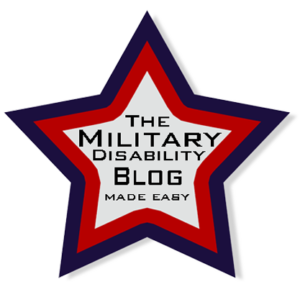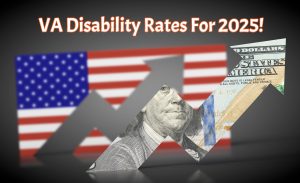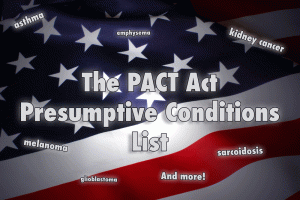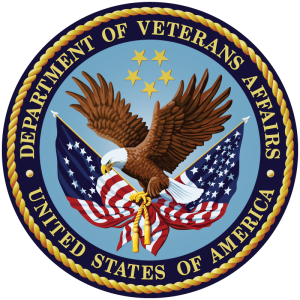Proposed Task Force To Study the VA Backlog
- Published:
- Last Updated: October 5, 2022

Continuing with last week’s news topic, there are two bills that are currently in Congress that are meant to help decrease the VA’s backlog of disability claims. I discussed the first, the Veterans Backlog Reduction Act, last week. Today, I’ll discuss the second act, “An Act to improve the processing of disability claims by the Department of Veterans Affairs, and for other purposes.” And, yes, that is the name of the act. I guess they couldn’t come up with something a little catchier or at least a little shorter, so I’ll do it for them. Let’s call it “The Superheroes Fighting the Backlog Act.” Much better.
While the Veterans Backlog Reduction Act is designed to help those whose claims are taking too long to process, the Superheroes Fighting the Backlog Act will create a team (they call it a “task force”) who will research the backlog and the VA’s system, and then come up with a game plan on how to fix it. The goal is to accurately and thoroughly identify the VA’s problems, the cause of the problems, and the best way to fix the problems.
There are two big processes that the team will be focusing on: the VA Disability Process and the VA Appeals process.
The VA Disability Process is the process that all veterans must go through when first applying for VA Disability. The VA Appeals process comes after the VA Disability Process. If a veteran does not agree with his VA Disability Rating, he can appeal to have his case re-examined.
According to the Act, the team will research the following issues:
- The exact cause of the backlog: Is it the number of employees? The employees’ workloads? The computer systems? The claim process? The amount of funds available?
- The current backlog: What is the best and most efficient way to deal with the current pending claims?
- The claims process: How could the claims process be simplified? How can it be more efficient and easy to understand? How can it be adjusted to prevent backlogs in the future? Can the laws regulating the claims process be improved?
- The appeals process: How could the appeals process be simplified? How can the process be improved to deal with an increase in the number of appeals? Are there enough employees and resources to deal with the workload? Should there continue to be one centralized Board that deals with the appeals, or should there be many regional Boards? Can the laws regulating the appeals process be improved? How can the Court of Appeals for Veterans Claims be improved?
As they research these issues, the team has a few things they must take into consideration.
- The interests of the veterans: Is the system accurate and fair to every veteran? Is the system simple and easy to understand? (The answer to this is clearly, NO. But hopefully by considering this, they’ll be able to suggest ways to make it so.)
- The Constitution: Is the system in compliance with the values of the Constitution?
- The interest of the public: Does the system properly utilize its given resources?
Once The Superheroes Fighting the Backlog Act is passed by Congress, the team will have 6 months to complete all their research and develop a thorough game plan on how to fix the VA’s system. Over these 6 months, the team will have to submit regular reports to the Secretary of Veterans Affairs, the Chairman of the Board, and the Chief Judge of the Court of Appeals for Veterans Claims, keeping them updated on their findings and progress. These individuals will then have to submit reports to Congress.
At the end of the 6 months, the team will have to submit a final report. In this report, they are to include “a feasible, timely, and cost-effective plan” to remedy the VA’s disability process.
The Secretary of Veterans Affairs, the Chairman of the Board, and the Chief Judge must then decide what parts of the plan they will use. They aren’t required to use any of it, but for anything they do not use, they must submit a report to Congress explaining why. Giving these three people the final say on things could be a good thing and a bad thing. They are ultimately in the position to implement all the proposed changes, so their acceptance of all the changes is vital to making them happen. Additionally, it is possible for the team to propose changes that may not really do much good. This final vote may prevent some negative things occurring. At the same time, they could choose not to do some things that really would be a huge benefit. Hopefully reporting to Congress will be a big enough motivator to put as much as possible into action. Alas, a system of checks and balances.
That’s the meat of The Superheroes Fighting the Backlog Act. Like in most Acts, there are additional things that the Act will do to the VA disability system beyond the formation of this review team and their actions. I’ll discuss those things next week.
Recent Posts
The 2025 VA Disability Rates are here!
December 2, 2024
-NEW- Proposed Changes to the Ratings of the Central Nervous System
November 14, 2024
The PACT Act Presumptive Conditions List
November 4, 2024
ACDC’s 2024 Recommendations to the VA
September 27, 2024
About Us









